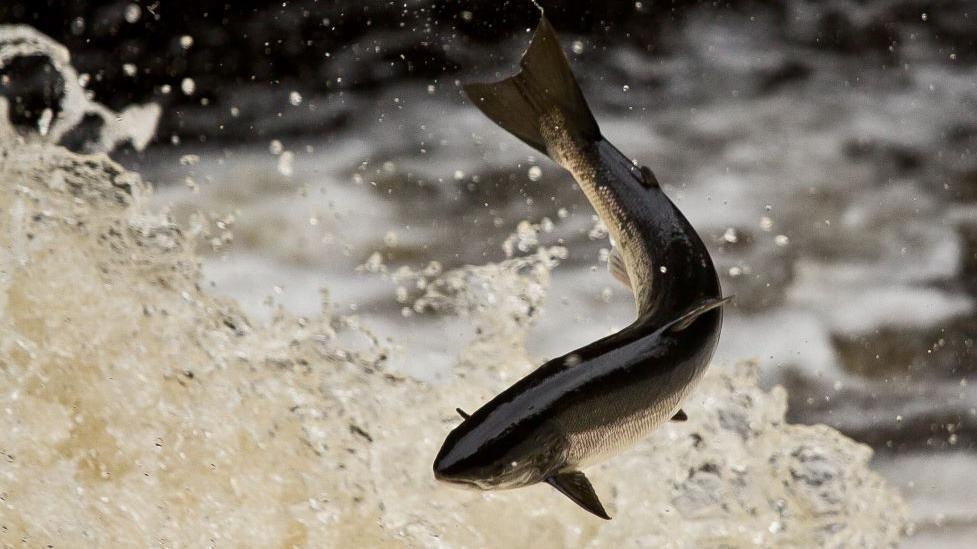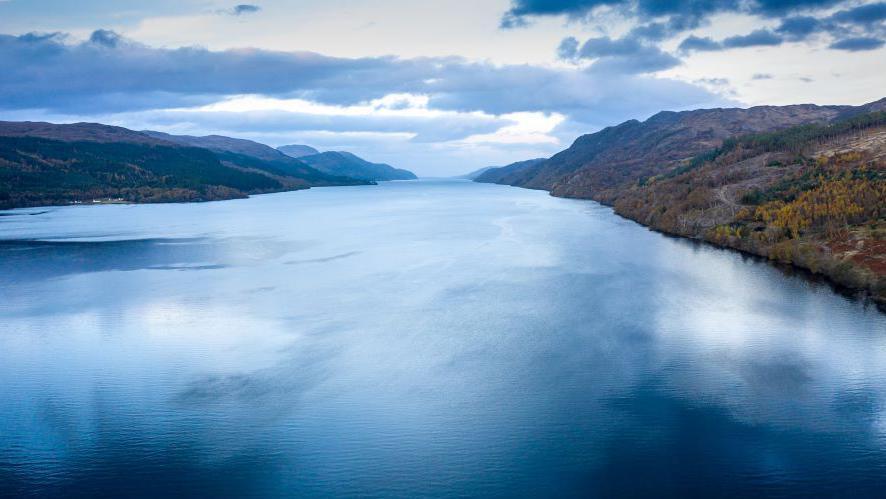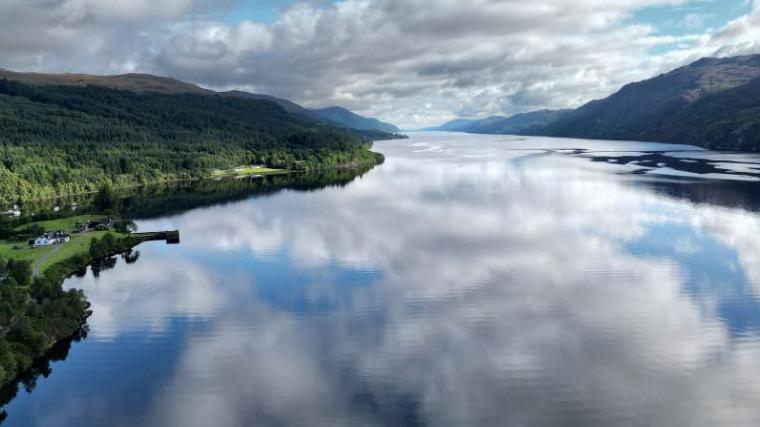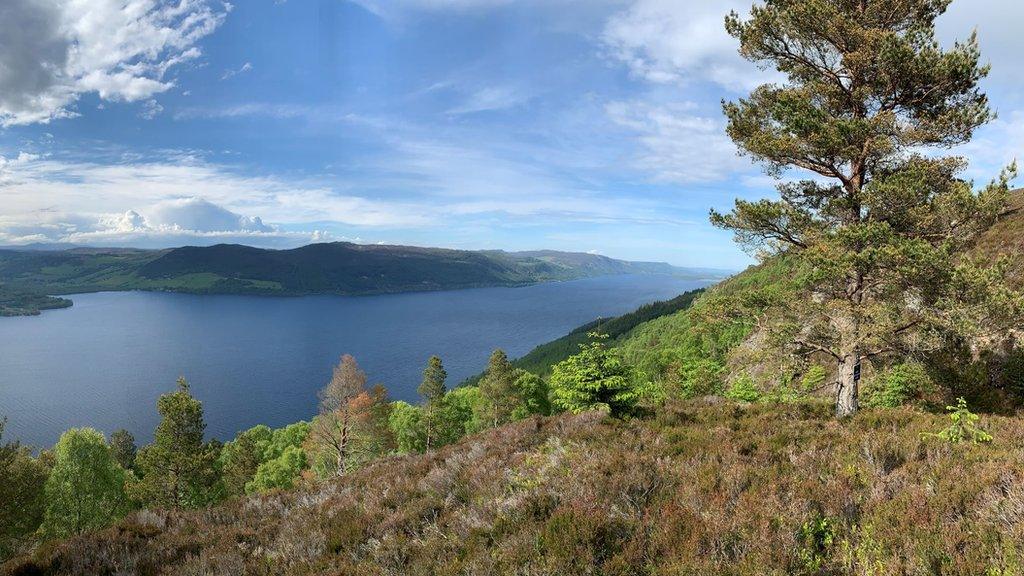Wild salmon fears prompt call for pause on hydro schemes

- Published
A salmon fishery board has called for a temporary halt on any further pumped storage hydro-electric schemes on Scottish lochs.
Ness District has raised a petition with the Scottish Parliament requesting a moratorium until the impact on wild salmon populations is properly understood.
The schemes draw water from lochs to reservoirs before releasing the water back to generate power at peak times, but the board warns that changing water levels could disrupt shoreline habitats and fish migrations.
The Scottish government said it could not comment because the issue involved a live planning application.
Ness District Salmon Fishery Board's petition follows concerns it raised last year about levels on Loch Ness.
The board said it was not opposed to hydro-electric schemes, but wanted a greater understanding of how they might affect fish and other wildlife.
It said young salmon used natural currents to migrate downstream, and warned that fluctuating water levels could affect water temperatures.
Director Brian Shaw said artificial changes to lochs posed risks.
"Raising the level of Loch Ness by one metre would have devastating and irreversible ecological consequences," he said.
"Furthermore, restricting levels in the River Ness to a 'compensation flow' regime would mean that the river would lose all semblance of being a natural river.
"Scotland’s and arguably Europe’s most iconic loch, the River Ness and the surrounding ecosystem are at risk."

Ness fisheries board has particular concerns around water levels on Loch Ness
Statera Energy, which has a proposal that would involve water from lochs Ness and Kemp, said its operations would be regulated by Scottish Environment Protection Agency (Sepa).
The company said safeguards would be also built into its project.
A spokesperson said: "The Loch Kemp project will operate within the existing levels in Loch Ness and the point at which we must stop taking water out of the loch is determined by Sepa.
"This means we must stop operating before existing schemes on the loch. We are aware this means there could be curtailment of our operation at some points in the summer months and this has been factored into the costings of the scheme."
They added: "Longer term, we believe there are modifications that could be made to the infrastructure on the loch which would protect against the low levels which have been evident over the last 10 years driven, at least in part, by climate change."
Related topics
- Published17 May 2024

- Published5 January 2024
